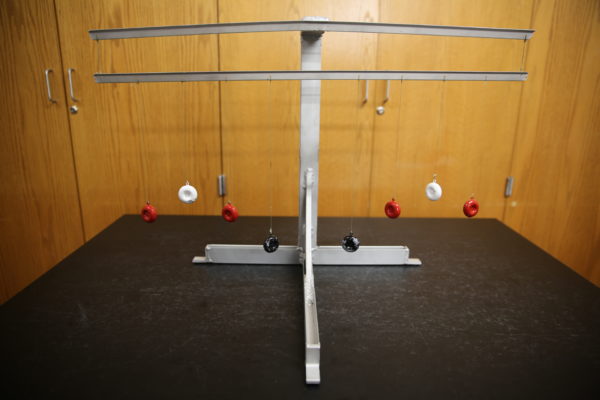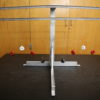(3A70.20) Multiple Coupled Pendulum
$0.00
Every pendulum has a natural frequency which depends on the length of the pendulum. When one the pendulums is allowed to swing, it pulls slightly on the connecting bar on top. This tugging motion occurs at the same natural frequency as some of the other pendula. So, the other (same length) pendula will start to swing, but slightly out of phase with the first one. This will slow down the first pendulum until all the energy is transferred and comes to rest. This situation is replayed and the energy is repeatedly switching back and forth until friction and air resistance steals away all of the energy.






Reviews
There are no reviews yet.